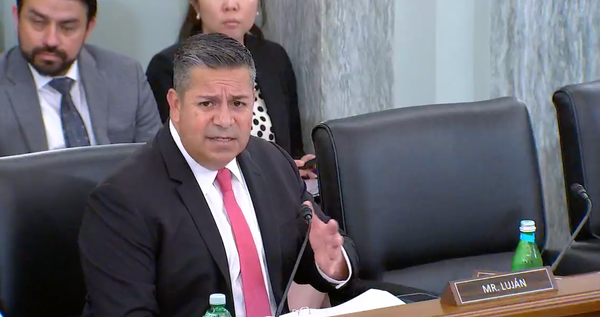CES 2024: Senators Talk Priorities on AI, Broadband Connectivity
Lawmakers called for guardrails on AI systems and more ACP funding.

LAS VEGAS, January 12, 2024 – U.S. senators highlighted their tech policy priorities on artificial intelligence and broadband connectivity at CES on Friday.
Sens. Ben Luján, D-New Mexico, Cynthia Lummis, R-Wyoming, and John Hickenlooper, D-Colorado, sat on a panel moderated by Senator Jacky Rosen, D-Nevada.
Promise and perils of AI
The lawmakers highlighted their focus on mitigating the potential risks of implementing AI.
Hickenlooper touted the AI Research, Innovation and Accountability Act, which he introduced in November with Luján and other members of the Senate Commerce, Science and Transportation Committee.
That law would require businesses deploying AI in relation to critical infrastructure operation, biometric data collection, criminal justice, and other “critical-impact” uses to submit risk assessments to the Commerce Department. The National Institute of Standards and Technology, housed in the department, would be tasked with developing standards for authenticating human and AI-generated content online.
“AI is everywhere,” Hickenlooper said. “And every application comes with incredible opportunity, but also remarkable risks.”
Connectivity
Luján and Rosen expressed support for recent legislation introduced to extend the Affordable Connectivity Program. The fund, which provides a $30 monthly internet subsidy to 23 million low-income households, is set to dry up in April 2024 without more money from Congress.
The ACP Extension Act would provide $7 billion to keep the program afloat through 2024. It was first stood up with $14 billion from the Infrastructure Act in late 2021.
“There are a lot of us working together,” Luján said, to keep the program alive for “people across America who could not connect, not because they didn’t have a connection to their home or business, but because they couldn’t afford it.”
Lawmakers, advocates, the Biden administration, and industry groups have been calling for months for additional funding, but the bill faces an uncertain future as House Republicans look to cut back on domestic spending.
Luján also stressed the need to reinstate the Federal Communications Commission’s spectrum auction authority.
“I’m ashamed to say it’s lapsed, but we need to get this done,” he said.
The Commission’s authority to auction off and issue licenses for the commercial use of electromagnetic spectrum expired for the first time in March 2023 after Congress failed to renew it. A stopgap law permitting the agency to issue already purchased licenses passed in December, but efforts at blanket reauthorization have stalled.










